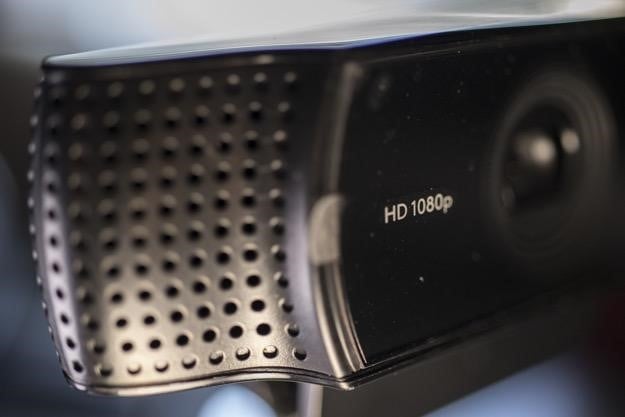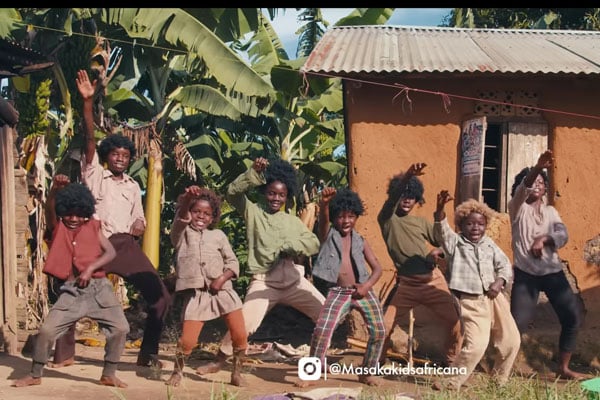Prime
South Sudan YouTubers piggyback on Uganda, Kenya digital space

Youtuber Mr BMG hands silver plaque to NCA boss Napoleon Adok (in jacket) in Juba, South Sudan during fourth Connecting South Sudan conference in March, 2024. PHOTO | POOL
What you need to know:
- Other top digital markets whose audiences bring revenue for YouTubers include Australia, Switzerland, Norway, New Zealand, Canada, Denmark, United Kingdom, Germany and the Netherlands, with South Africa ranking 34th overall and Sub-Saharan Africa’s top earner, with a RPM of $6.61.
Despite raking in forex dollars, South Sudan YouTubers are compelled to seek digital refugee in Uganda and Kenya in order to monetise their content and build online presence that translates into money, as the world’s youngest nation cannot currently fetch views as it lags behind on data protection, intellectual property laws and community standards.
Last month, some of the successful content creators who include popular artists, lifestyle bloggers and comedians, with more than 100,000 followers on YouTube and TikTok, said the nonexistence of South Sudan in the digital marketplace is a dampener for online business growth prospects.
“Last year when I created my YouTube Page, South Sudan was not monetised on YouTube,” says T Manager (real name Taban Awet), a South Sudanese recording artist.
“So, you have to register your channel from Kenya or Uganda for it to be easily monetised.”
T Manager boasts of 150,000 followers on YouTube and 25,000 on TikTok from which he earns at least $500 a month for content uploaded on the platforms, but views that his popular music in South Sudan attract, fetch him no revenue from the tech giants.
Lifestyle blogger and comedian Mr BMG (real name Meta Nelson Taban), who is also a YouTuber with 142,000 subscribers – and a recent recipient of the YouTube silver plaque after his content hit one million views, argues that views from South Sudan currently don’t translate into money for content creators.
Top digital markets
“Even if you have views in South Sudan, it’s zero money. You don’t get anything,” says the YouTuber who earned $3800 last year after hitting a million views.
“When you watch YouTube videos here, there are no ads that run on the videos compared to Uganda and Kenya and other countries.”
Online platforms use cost per mille (CPM) or revenue per mille (RPM) metrics which determine how much a content creator is paid per 1000 views in a digital market. For instance, the United States tops, with an average RPM of $11.04 for YouTube, according to Is This Channel Monetised analysis.
Other top digital markets whose audiences bring revenue for YouTubers include Australia, Switzerland, Norway, New Zealand, Canada, Denmark, United Kingdom, Germany and the Netherlands, with South Africa ranking 34th overall and Sub-Saharan Africa’s top earner, with a RPM of $6.61.
YouTube channels based in Uganda and Kenya average $3 per 1000 views, but the analysis explains that earning also depends on other factors, including the content niche, audience engagement, and even the time of year it is uploaded, which can all influence how much those views actually bring home.
On May 16, 2021, T Manager recorded his song Rabuna Gi Ayinu (God is Watching) which went viral on YouTube; within 24 hours, it reached 400,000 views and that same night he got over 20,000 followers, which marked his foray into online content creation for audiences in the diaspora.
Analytics however, show that most African digital content has its biggest audiences in Asia. Mr BMG’s first video to go viral was in India, a recording of how Indians react when they meet South Sudanese and what they want to know about idiosyncrasies that are peculiar to the world’s youngest country, including its very dark and tall people, food, Juba lifestyle, traditional marriage and culture.
9.4 million users
The video picked up and got 2.6 million views and has not reached a total of about 20 million views in India, Nepal, Sri Lanka and Pakistan.
According to Global Media Insights, South Asia is the region with the highest number of YouTube users, with 580.1 million users, followed by Southeast Asia with 332.6 million users, and North America with 279.1 million users.
South America and Western Europe are also among the top five regions, with 262 million and 162.6 million YouTube users, respectively, while Western Africa has 42.2 million users, 25.8 million in Southern Africa and Eastern Africa trailing with 9.4 million users.
Last month, Napoleon Adok, the Director General of the National Communications Authority (NCA) – the regulator of South Sudan’s telecom sector – explained that issue of community standards, but also the quality of content, internet infrastructure still hampers the country’s monetisation in order for its content creators to cash in from its presence in the digital space.
“The internet we are using here is not from South Sudan, and that’s why you go to Uganda. And so when you are dancing here, you are digitally recognized as dancing in Uganda. You get all those likes, because there the community is organised and standards agreed on,” he said.
“The beauty of our country is that all these platforms are not available here; we are accessing them remotely, but this has to change,” he added. Mr Adok concedes that South Sudan TikTokers cannot make money online because the networks that carry the content are owned by big tech giants such as Meta, Google, Tiktok and Twitter, who demand certain community standards that the country is yet to sign up to, for protection of content creators' work.
“Monetisation of this content hinges on the country reaching agreements on community standards, data regulation and intellectual property protection laws. The network providers want to see that the country has such laws in place,” he said.
Industry experts also warned that South Sudan risks missing out on many opportunities that exist with digital connectivity if the country remains outside the loop of the big tech content provider networks.
“Our view is that South Sudan is still falling short on these because it has not domesticated the Malabo Declaration on data protection. It is imperative that South Sudan considers legislation on data protection,” said John Omo, Secretary General of the African Telecommunications Union.
Thys Kazan, Meta’s Regional Director for Sub Saharan Africa also argues that the biggest opportunity in the digital space will come for the content creator but only if they are supported by the relevant national laws that enable tech giants to apply community standards for content moderation.




